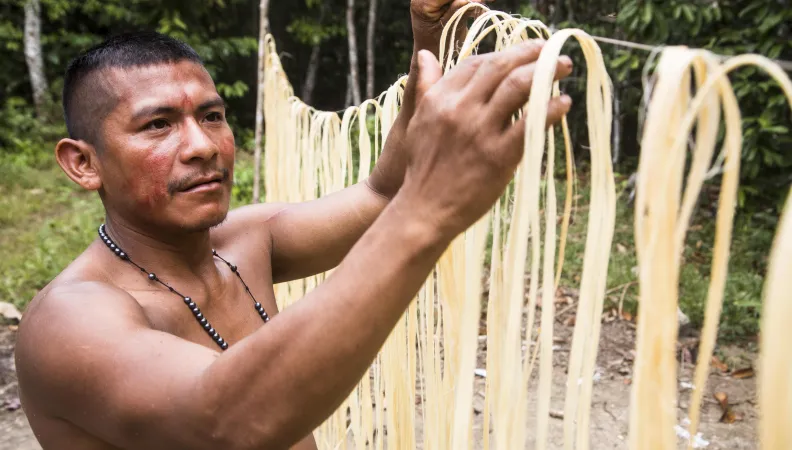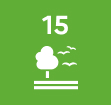Share the page
TerrIndigena, for the rights of indigenous communities and their environment
Project


-
Project start date
-
Status
In progress
-
Estimated date of project termination
-
-
Project financing date
-
-
Financing duration
-
4 years
-
Type of program
-
FFEM
-
Global financing amount
-
5720000 €
-
FFEM financing amount
-
1720000 €
-
Project lead member institution(s)
-
AFD
-
Country and region
-
Colombia, Brazil, Ecuador
-
Type of financing
-
Grant
-
Beneficiaries
-
Gaïa Amazonas (Colombia), EcoCiencia (Ecuador), IEPE (Brazil)



The project, financed by the Agence Française de Développement (AFD) and the French Facility for Global Environment (FFEM) with a subsidy of €5.72 million, supports efforts underway to protect the Amazon region and its biodiversity, and to ensure the rights of the communities living there. The goal is to enhance the protection of over 17 million hectares of territory in Brazil, Colombia and Ecuador, working with 18 indigenous organisations.
Context
Terrindigena project framework
The Amazon rainforest – essential to maintaining Earth’s great ecological balances – is threatened by deforestation, ecosystem degradation and the over-exploitation of its resources. Two of the main tools for protecting the rainforest and slowing deforestation, are the creation of protected areas and the recognition of indigenous territories, which make up around 47.2% of the Amazon region (RAISG - Amazon Network of Georeferenced Socio-Environmental Information). While the region north of the Amazon river, where the project is taking place, forms part of the best-preserved Amazon areas, it now faces growing threats, both environmental (deforestation, water and soil pollution) and socio-cultural (increased vulnerability of indigenous communities).
Description
The three main areas in which the project is active are located in the region north of the Amazon river, in Colombia, Ecuador and Brazil. The project is being implemented by the NGOs Gaia Amazonas (Colombia), EcoCiencia (Ecuador) and IEPE (Brazil) in collaboration with 18 indigenous organisations in the region. The activities have four components:
- Strengthening governance tools to ensure indigenous rights are better represented and their territories better protected;
- Community monitoring of endogenous and exogenous pressures and threats;
- Implementing income-generating activities aligned to traditional values and cultures that respect the ecosystems; and (iv) sharing knowledge and experience, and coordinating stakeholders, at regional level.
Outcomes
TerrIndigena will be implemented in collaboration with 18 indigenous organisations, with aims including:
- Update or implemente 10 life plans and 10 protocols for liaising with external stakeholders including prior and informed voluntary consent;
- Ensure the monitoring of pressures, threats and changes to 8,700,000 ha of forest cover through an inter-cultural monitoring system that combines monitoring via GIS systems with monitoring via communities’ own traditional indicators; and
- Analysis and support for the development of 7 economic initiatives based around non-wood forestry products integrated into community culture.
Innovative and exemplary features
The innovative nature of this project lies in the intervention philosophy which allies environmental and anthropological issues, lead to sustainable landscape management principles, methods or technologies being tailored to the particular context of the Amazon regions managed by indigenous peoples. A further example of innovation is the development of a strategy based on monitoring impacts on biodiversity and natural resources to assess the environmental and socio-cultural situation of a region according to elements relevant to the indigenous populations.
Sustainable Development Goals
ODD13 Climate action

ODD15 Life on land

ODD17 Partnerships for the goals



